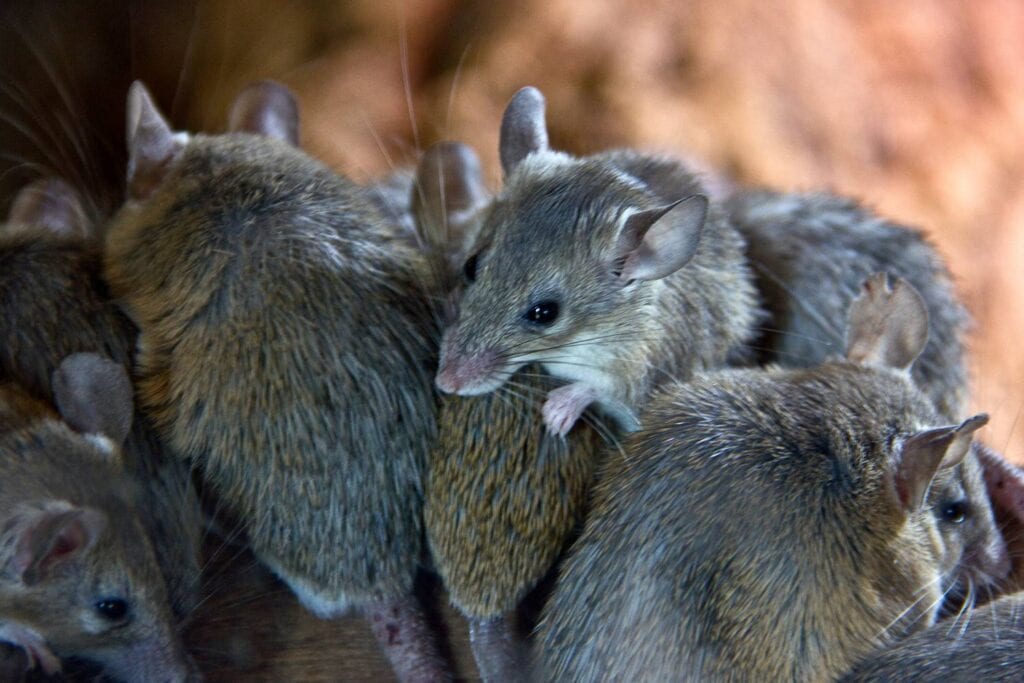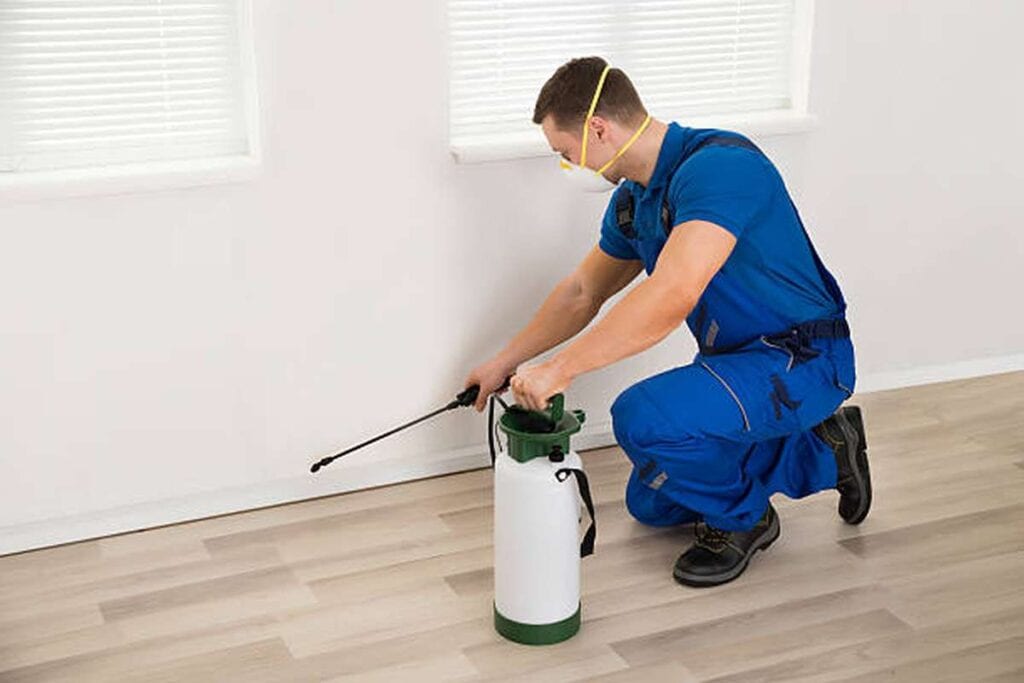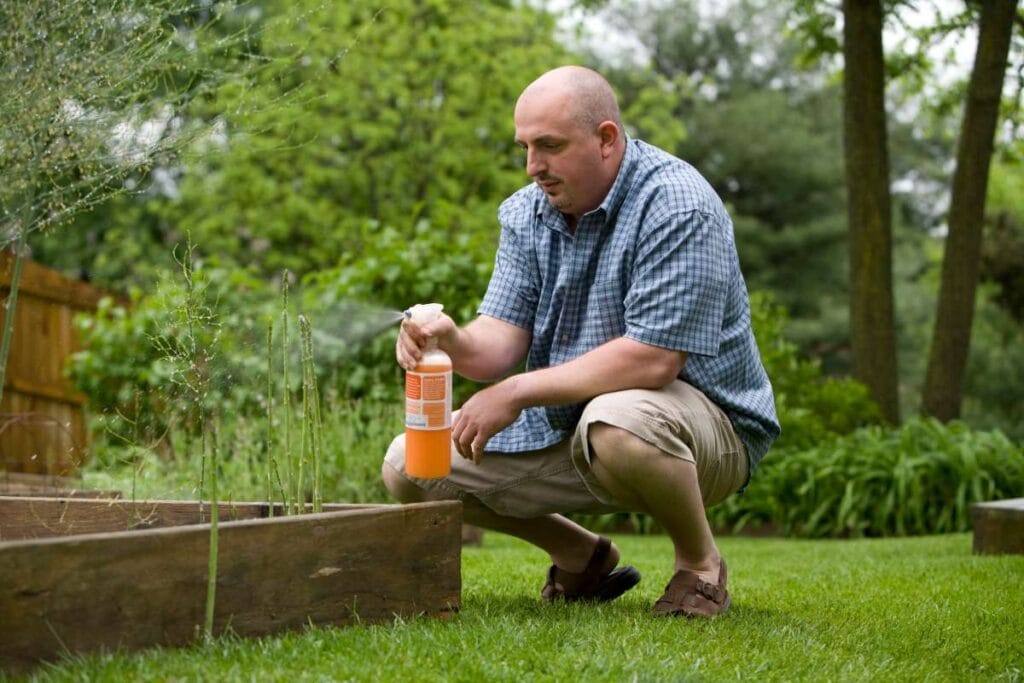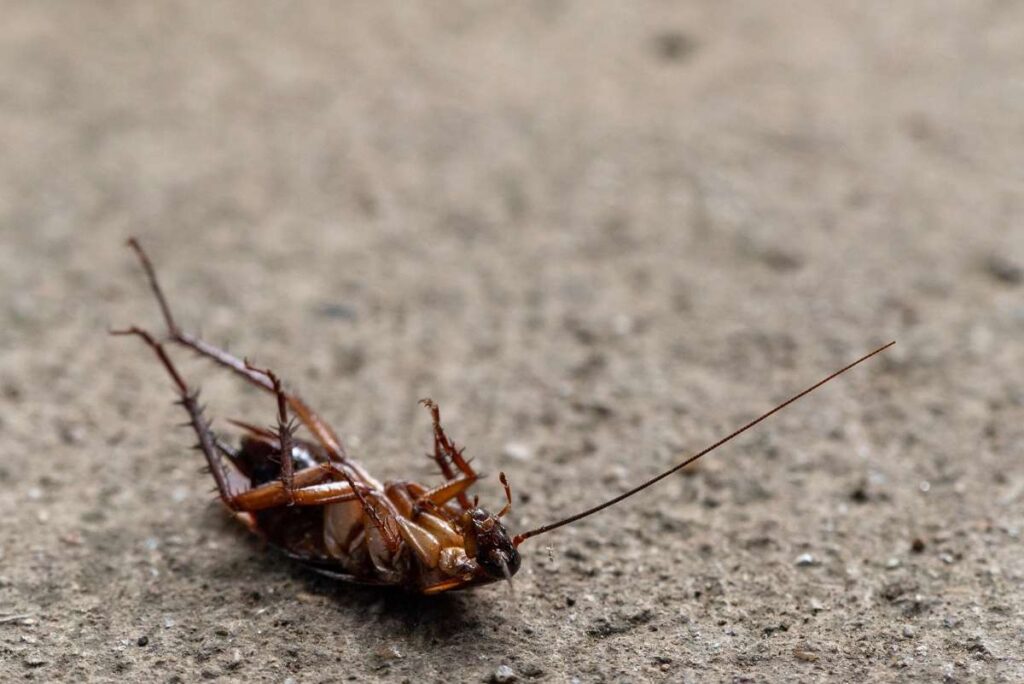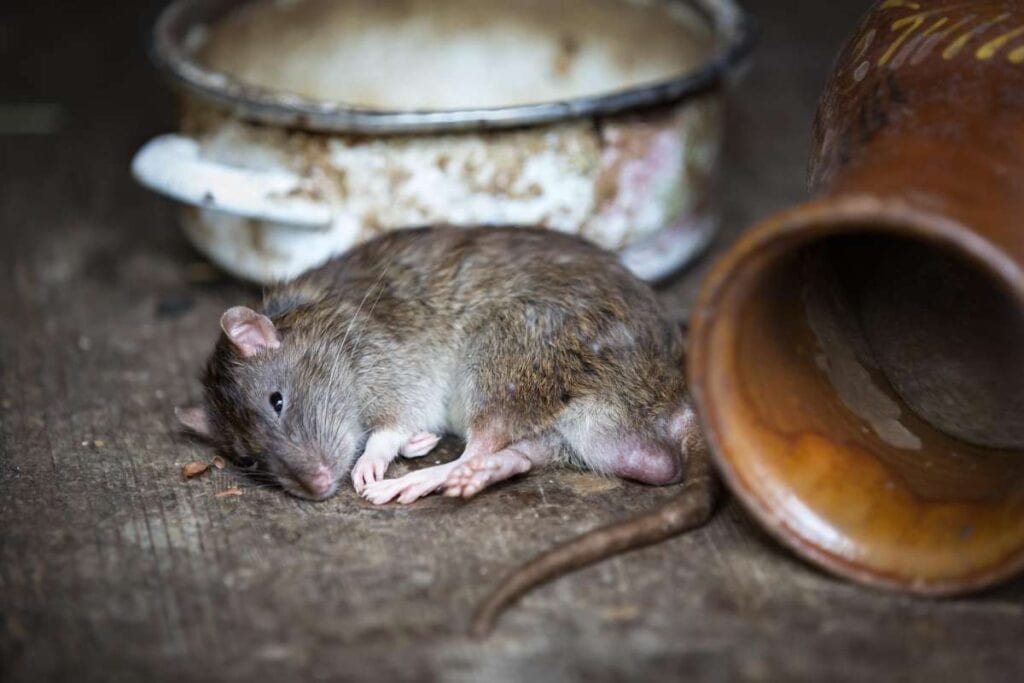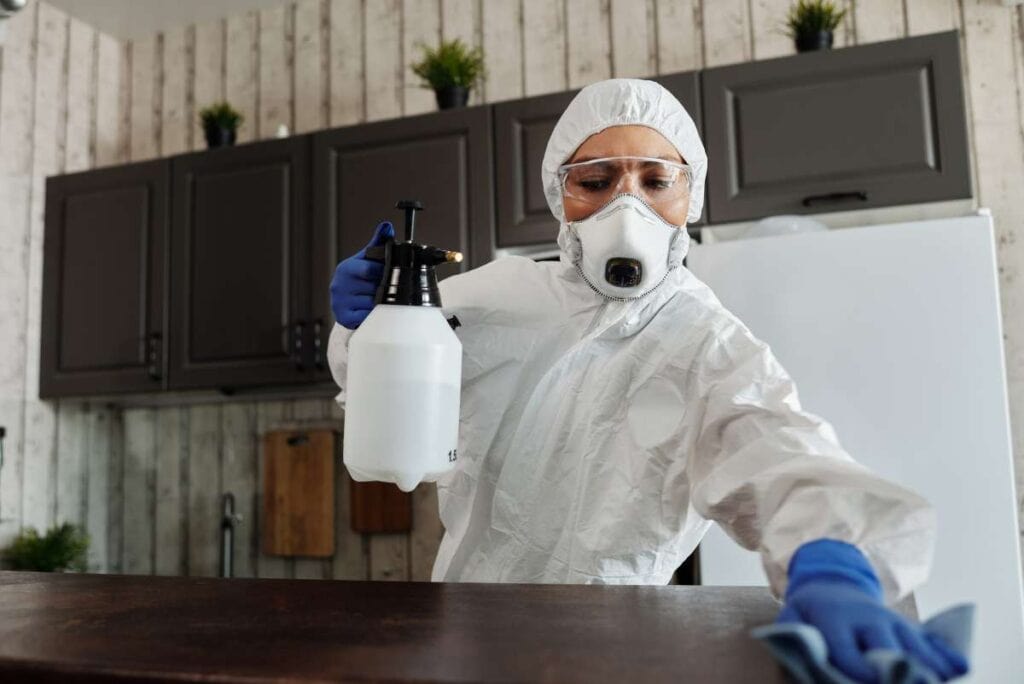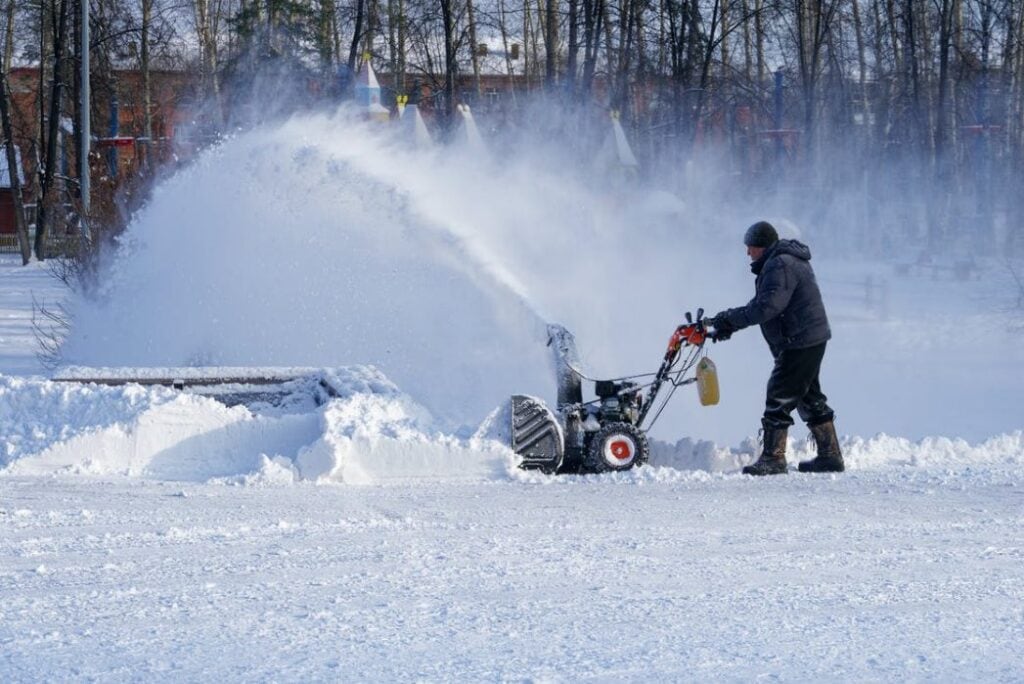Finding mice or rodent droppings in your house is disturbing and dangerous. Mice can spread disease, infest your home with fleas and ticks, and contaminate your food. They can also chew through electrical lines and bore holes in your flooring and walls, inflicting significant damage to your home.
You should not delay taking action and formulating a strategy to eradicate mice if you encounter any. To stop them from returning, you should also take precautions. Knowing how to deal with a mouse infestation quickly and efficiently is important for a healthy and pleasant living space.
What Makes Mice And Rats Different From Each Other?
There is a difference between rats and mice, two rodents that can cause difficulties in your home and aren't easy to prevent. Mice are little rodents with long, skinny tails and a body size comparable to a sparrow. Infestations of mice can occur in many forms, yet they always share a common appearance.
Rats are significantly larger than other animals, with bodies approximately 10 inches long and longer and thicker tails. Sometimes, rats would go out of their way to catch and devour mice.
Both rodents, mice and rats, may wreak havoc on your house and possessions, not to mention spread sickness and parasites. The second you discover their presence in your home, you must immediately eradicate them.
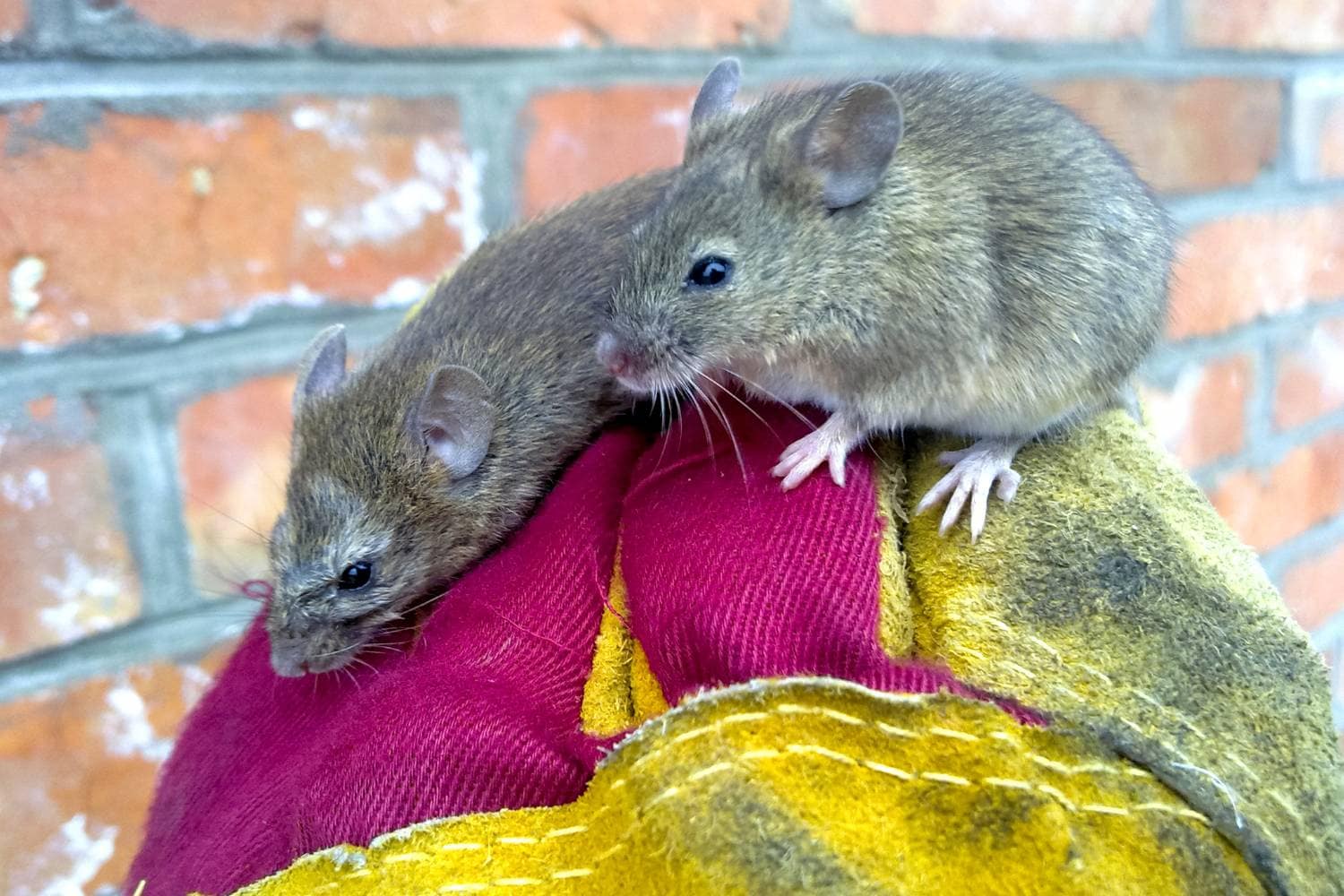
Signs Of A Mouse Infestation
Little rodents. Even though they're small, these rats cause far more bother than they're worth. While you're not looking, they can gnaw on electrical lines, harass your pets, and even steal your food. When mice invade your home, they bring dangerous infections in their saliva and faeces. They also carry fleas and parasites.
You must know the telltale indicators to keep on top of a mouse infestation. Call a professional pest control company regarding mouse removal when you see mouse droppings or other evidence of their presence.
In particular, this is of utmost significance during the winter months. Mouse populations will begin to seek warm areas to spend the season as temperatures begin to drop.
There are a few different species of native mice in Australia. Always be on the lookout for these guests to avoid causing significant harm to your property or your health.
Smell
You will not only be able to see pee marks and droppings, but you will also be able to smell them. A strong, unpleasant smell that you can't seem to get out of your home could be the urine of mice.
A carpet steamer, a mixture of white vinegar and water, and some physical effort may be necessary to remove this odour. Despite the additional work, you will succeed in eliminating it.
To add insult to injury, the odour produced when rodents die inside your walls can be overwhelming. The removal of the corpse might necessitate sawing through a section of wall.
This is why waiting for the pest control company's clearance is crucial before sealing up mouse tunnels. Trapping mice in a room where they will perish might have terrible consequences.
Noise
Mice can produce strangely powerful sounds for their size. You can be under the impression that you have a troupe of koalas in your attic before you realise they are mice. At night, mice are more likely to be active.
At night, if you hear sounds in your ceiling or walls that sound like running, scratching, skittering, chewing, or loud thumps, there is a good likelihood that the sounds are coming from mice.
Droppings
Mouse droppings are one of the most unattractive indicators of a rodent infestation. Be looking for urine stains or droppings in dark corners of your pantry, cellar, or attic.
These tiny, black droppings could blend in with other trash, such as dirt puddles. Nevertheless, they will be organised in a manner distinct from dirt. Their darker colouration indicates that they are quite new. Finding mouse droppings is a certain way to know that mice have made your home their home.
Holes
Mice will tear holes in your home's foundation to get entry. Things like chewed-through drywall, enlarged holes where electrical cables enter a house, and rips in the insulation surrounding doors and windows are all signs of structural damage.
You can detect rodents by watching outside your home, any possible entrance points, and appealing interior locations, such as eaves space, pantry corners, and warm nooks close to your furnace. Although the holes are barely larger than a dime, you might be shocked to hear that mice are experts at fitting through tiny openings. An essential component of avoiding reinfestation is closely watching and sealing off any openings.
Nests
A mouse nest may take some time to be obvious to you. Soft debris and garbage that mice gather are the usual materials for these. You may almost certainly identify a mouse nest by its characteristic collection of sticks, old tissues, and leaves stashed in a box in your basement or a garage corner.
Mice have multiple litters per year, averaging 5–15 young. They will use their nests to raise these little ones. Find these nests fast so you can keep a multi-generational family out. Nests made by mice can be quite intense. Remove with caution to avoid spreading sickness.
Pet Reactions
In most cases, your pet will be the first to know when mice are an issue, even before you do. They could be onto something if they start sniffing about quite a bit or listening intently to something that didn't interest them. In addition, you might hear them scrabbling or barking at low-hanging furniture and appliances. They are probably attempting to catch a hidden mouse in that spot.
Food Disturbance
When it happens once, you might try to explain it away as your cereal coming home from the store, but after a couple of bags, you can see a little creature pursuing your munchies. Preventing mouse infestations can be achieved by ensuring that food is always readily available. Please close the door to the pantry and store it there. Put grains and leftovers in storage containers instead of the bags and cartons they came in from the supermarket.lit
How To Remove Mice From Your House
Since mice are prolific breeders, you should expect an influx of new rodents in no time. In a year, a single female mouse can have as many as eight litters, each consisting of five to six young. Those progeny have a maximum lifespan of three years and can start reproducing as soon as six weeks.
Thankfully, various control measures, such as baits, traps, and hiring a professional pest control company, are available. In most cases, trapping is the most effective and secure way to eliminate mice or to keep them contained for relocation. However, poisoning can be cruel and dangerous to kids and pets.
Address Access Points
Sealing holes around pipes, roof vents, and other possible access places is a good precaution to take alongside trapping. Not only will this eliminate the mice right now, but it will also drastically reduce the chances of future infestations.
Remember that mice are quite good at fitting through very small spaces. If a pencil can squeeze through a narrow opening, it's safe to assume that a mouse can do the same. To effectively control pests and prevent mouse infestations in the long run, it is vital to seal off all possible entry sites.
Choose The Correct Bait And Trap
Most people think of a simple wooden snap trap when they think of a mouse trap. These are economical and work, but they need to be kind. Some traps use a catch-and-release method if you find snap traps disturbing.
Peanut butter is the superior bait for catching mice when compared to cheese. Mice will eat almost anything, so change the bait every few days to prevent it from becoming too hard or stale.
Curious and eager to explore, mice will dig into anything they can find. Therefore, you should relocate the trap (or mouse bait) if you don't catch any mice in the first several days of putting it out.
Choose The Proper Location For The Trap
Strategically place the traps where you have found evidence of a mouse infestation, such as ripped paper or cloth, urine stains, droppings, or chewed objects. The garage is a good place to put a few traps because that's where mice often nest or enter, and you should also put them near food and water sources.
To ensure rodents can't just grab the bait and run away, it's important to connect it firmly to the trap trigger. Here, peanut butter comes into its own as a bait option for mouse traps. The sticky texture makes it difficult for mice to pick up the food, which increases the chances of the trap being set off. The efficiency of the trap in capturing mice is enhanced by this simple yet efficient strategy, allowing you to manage the issue swiftly.
Tips For Preventing Mice Infestation
In your house, you may find that rodents like mice and rats are as thrilled to stay as you are—if you aren't cautious. When rats burrow into your home's foundation, they threaten your safety and destroy its structural integrity.
Cover Holes
Mice and other rodents can get into your house through cracks in the foundation, walls, corners, and doors. To avoid infestation, these should be fixed promptly or coated with mesh wire so rats and mice cannot eat or bite through them.
Tidy Up
Be very careful to clean up the area surrounding your home. If there are any mice, this will assist in bringing them to light and deter them from returning. A discarded bread crust, for example, can be a rodent's dinner. It's important to remember that even little spills can have a big impact. Mice are known to nest in cluttered areas, so if you offer them a chance, they will happily settle into your filthy clothing.
Eliminate All Food Sources
Keep all food containers well shut and out of sight, as mice are drawn to food by scent. Use only airtight plastic or glass storage containers for your perishable food items. Ensure any food exposed to the elements is removed from your pets between feeding periods.
Regularly Clean The Yard
Preventative maintenance entails keeping outdoor spaces free of food scraps and standing water, two things that pests love to hide. Remove any of these items around your house to keep mice at bay.
Inspect Your Home
If you have a mice problem, it's a good idea to check your house thoroughly, paying special attention to potential feeding spots. Look under the sink, in the drawers and cupboards, and behind any appliances you may have to see if there are any traces of food debris. Murders and droppings along walls, on studs or beams, or inside old furniture are other regular occurrences.
Remove Any Possible Nesting Places.
Inspecting your home for mice may lead you to spots where unpleasant pests may hide, such as under piles of paper and rubbish. To keep rodents like rats and mice out of your house, remove them from the inside and outside.
Before you do anything to keep mice, put on a pair of plastic gloves. Mice contaminate everything they touch and are known to carry infectious diseases. If you find mouse nests in your home, it's best to get rid of them as quickly as possible. It would be best to keep checking after you've securely removed them, disinfected the area, and ensured they hadn't made new ones.
Since mice cannot gnaw through stainless steel mesh, placing it in the nest entrance may be useful once you locate it. In the meantime, you can cover the hole with the mesh.
Don't Leave Food Or Water Outside
Many mice problems start with food that pests can return to whenever they want. Mice will think your house is a good place to live if you leave food out. Keep all food and water out of your yard to avoid trouble. It's simple to allow rainwater to pool in areas close to your house or to overlook a tiny remnant from an event. Put out trash cans for disposing of food scraps instead, and cover damp spots with dirt.
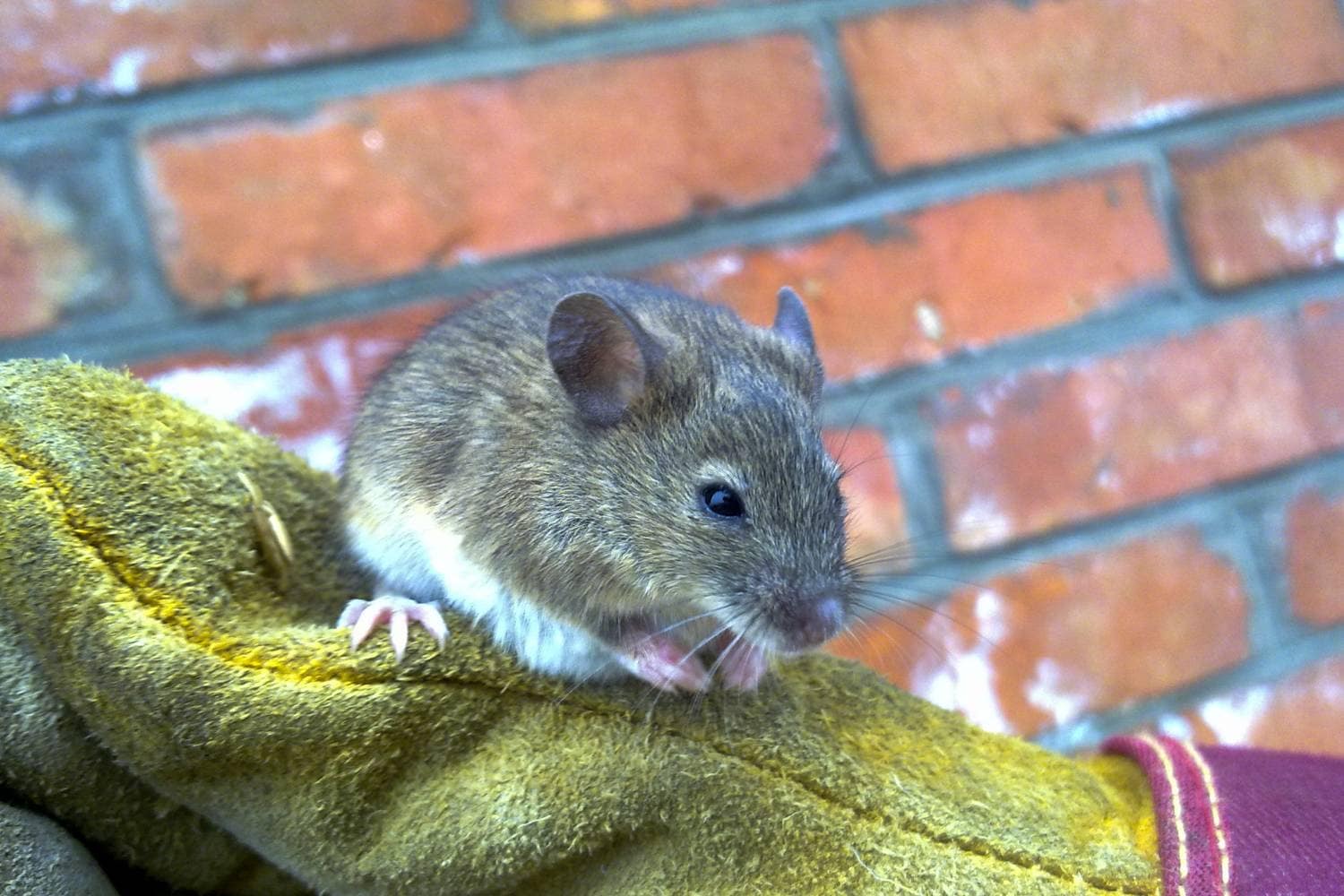
Help Get Rid Of Mice With Your Cat
You are much ahead of the curve if you already own a cat! If you have been thinking about getting one, now is the time.
If you still need to possess a cat and have no plans to acquire one, consider asking a friend or relative if they would let you stay with theirs. Assuming a mouse is present, they will instinctively and readily search for it.
Spend Money On Termite Treatment Services Often
Last but not least, the most effective method for preventing an infestation of rats and mice is to invest in routine pest control treatments. Do-it-yourself treatments should be avoided wherever possible because professionals will better understand how to manage issues regarding mouse and mouse infestation cases.
Conclusion
Mice and rats are two rodents that can cause significant damage to your home and property. Rats are larger and have longer, thicker tails than mice, which are little rodents with bodies like sparrows and long, thin tails. Both rodents have the potential to contaminate food, bring fleas and ticks into your house, and spread disease.
When you discover a mouse infestation, you should act and plan to get rid of the mice. A carpet steamer, white vinegar, and water can be used to eliminate a pungent scent that mice may have caused. It is imperative to wait for the pest control company's authorisation before sealing up mouse tunnels because the stench left behind by dead rats inside your walls might be overpowering.
Mice tend to make a lot of noise, and they are more active at night. You can find mouse droppings in the attic, cellar, or pantry's dark corners. They're unsightly. To get access, mice will rip holes in the foundation of your house. You can identify rodents by keeping an eye on your property's exterior, potential entry points, and visually enticing interior spots.
Typically, mice build their nests out of soft debris and trash, and they give birth to several litters of five to fifteen young each year. Keep a watchful eye on things and block off any openings to avoid reinfestation. When pets respond negatively to mice, it can also be a sign of trouble since they may begin to bark or sniff around appliances and low-hanging furniture.
By keeping food on hand at all times and storing leftovers in storage containers rather than bags and cartons, food disruptions can be avoided.
Mice breed frequently; annually, they can produce up to eight litters, each with five or six offspring. There are a number of control methods available to stop mouse infestations, including using baits, traps, and engaging a reputable pest control business.
The safest and most efficient method for getting rid of mice or containing them until they can be relocated is trapping. In addition to trapping, sealing holes around roof vents, pipelines, and other potential access sites is a recommended precaution to take.
Pick the right bait and trap—peanut butter is an excellent bait for capturing mice, for example. Move the mouse bait or trap if no mice are caught in the first several days. Set up the traps in areas where there is evidence of mouse infestation, such as chewed objects, urine stains, torn paper or cloth.
To prevent mice from getting inside your home, seal off any openings in the walls, doors, corners, and foundation. You should also clean your yard on a regular basis and tidy the area around your house to remove any potential food sources. Make sure to eliminate any potential nesting areas and conduct a thorough inspection of your property, paying particular attention to potential feeding spots.
Put on a pair of plastic gloves and remove any mouse nests as quickly as you can before taking any more action to keep mice. Cover the opening in the nest with stainless steel mesh after placing it there. If you leave food out, mice will believe your house is a nice location to reside; therefore, don't put food or water outside.
Whether you already have a cat, you could want to ask a friend or family member whether you could live with theirs. If there's a mouse around, they will naturally and quickly look for it. The best way to stop a rodent and mouse infestation is to invest in regular pest control treatments.
Content Summary
- Discovering mice or their droppings in your house poses both a disturbing and hazardous situation.
- Mice are capable of spreading diseases, infesting homes with fleas and ticks, and contaminating food supplies.
- They can cause significant damage by chewing through electrical lines and creating holes in floors and walls.
- Immediate action is crucial upon noticing signs of mice to both eliminate and prevent their return.
- Knowing how to efficiently deal with a mouse infestation is key to maintaining a healthy and pleasant living environment.
- Mice, small rodents with long, skinny tails, can be distinguished from rats by their size and appearance.
- Rats are larger, with bodies about 10 inches long, and sometimes prey on mice.
- Both mice and rats can cause extensive damage to your home and health, requiring prompt removal upon detection.
- Signs of a mouse infestation include noises, droppings, and physical damage to the structure of your home.
- Mouse droppings and urine can bring dangerous infections, fleas, and parasites into your living space.
- The unpleasant odour of mouse urine and the overwhelming smell from deceased rodents can be challenging to eliminate.
- Nighttime activity noises such as scratching, running, and chewing might indicate the presence of mice.
- Identifying mouse droppings, which are small and dark, is a clear sign of an infestation.
- Mice create entry points by chewing through materials like drywall and insulation.
- Mouse nests, made from soft debris and trash, can harbour multiple generations, spreading disease.
- Pets often react to the presence of mice before humans do, showing increased interest in certain areas.
- Food disturbances, such as nibbled packaging, can indicate a mouse problem.
- A female mouse can have up to eight litters a year, quickly leading to a significant infestation.
- Trapping is often the most effective and humane method for removing mice from your home.
- Sealing off entry points is essential in preventing future infestations and controlling the current population.
- Using the correct bait, such as peanut butter, increases the effectiveness of traps.
- Strategic placement of traps near signs of infestation can help in capturing mice more efficiently.
- Regularly cleaning and sealing food sources can deter mice from entering your home.
- Exterior maintenance, like covering holes and eliminating food sources, is vital in preventing mouse invasions.
- Professional pest control services offer the most reliable solution for severe or persistent mouse problems.
- Addressing access points by sealing holes around pipes and vents can drastically reduce future infestations.
- The right bait and trap selection can make a significant difference in capturing mice.
- Correct trap placement near evidence of mouse activity increases the chance of success.
- Prevention strategies include covering potential entry points and maintaining a clean environment.
- Eliminating all food sources by using airtight containers and cleaning regularly can help prevent infestations.
- Cleaning the yard and removing nesting materials can deter mice from settling in and around your home.
- Regular home inspections can identify potential feeding and nesting sites, allowing for prompt action.
- Removing any possible nesting places inside and outside your home is crucial in keeping mice away.
- Wearing gloves when dealing with mouse nests or droppings is important to avoid disease transmission.
- Stainless steel mesh can be used to block nest entrances, preventing re-entry.
- Keeping food and water sources inaccessible to mice is essential in discouraging their presence.
- Cats can be effective in naturally controlling and deterring mice from your home.
- Investing in professional pest control treatments can offer the most effective long-term solution to mouse problems.
- Ensuring your home and surroundings are unattractive to mice involves diligent cleanliness and maintenance.
- Recognising the signs of a mouse infestation early allows for quicker and more effective control measures.
- Understanding the differences between mice and rats can aid in applying the appropriate removal strategies.
- Pets may provide the first indication of a mouse problem, highlighting the importance of observing their behaviour.
- Keeping pantry doors closed and food in secure containers can reduce the likelihood of a mouse infestation.
- It's essential to stay vigilant for mice, especially during the winter months when they seek shelter.
- Effective mouse control requires a combination of exclusion, sanitation, and in some cases, eradication methods.
- Regularly inspecting for and sealing off any potential entry points can significantly reduce the risk of infestation.
- Using a combination of traps, baits, and professional pest control services can address both current and future mouse problems.
- The importance of dealing with mouse infestations promptly cannot be overstated due to the health risks they pose.
- Adopting a proactive approach to mouse prevention can help maintain a safe and comfortable living environment.
- Ultimately, understanding and implementing effective mouse control strategies can protect your home from the dangers and nuisances mice bring.
Frequently Asked Questions
Many homeowners successfully address mice infestations using DIY methods such as sealing entry points, setting traps, and maintaining cleanliness. However, professional assistance may be necessary for more severe infestations.
The time it takes to eliminate mice from your house depends on various factors, including the extent of the infestation, the effectiveness of the chosen methods, and how promptly you address the problem.
If your pet catches a mouse, carefully remove it from their possession to avoid potential injury or transmission of diseases. Dispose of the mouse safely and consider taking additional preventive measures to deter future encounters.
Yes, mice infestations can pose various dangers to both property and human health. Here's why:
- Health Risks: Mice can carry and transmit various diseases through their droppings, urine, and saliva. Some diseases associated with mice infestations include hantavirus, salmonellosis, leptospirosis, and lymphocytic choriomeningitis (LCMV). These diseases can be transmitted to humans through contact with mice or their contaminated droppings, food, or water sources.
- Allergies and Asthma: The proteins found in mouse urine, saliva, and dander can trigger allergic reactions and exacerbate asthma symptoms in sensitive individuals. Prolonged exposure to mouse allergens can lead to respiratory issues and other allergic reactions.
- Contamination of Food: Mice are notorious for contaminating food and food preparation areas with their droppings, urine, and fur. Consuming food that mice have contaminated can lead to foodborne illnesses and gastrointestinal problems.
Yes, cleaning and sanitising after removing mice from your home is crucial. Mice leave behind droppings, urine, and other contaminants that can harbour harmful bacteria and spread diseases. Cleaning and sanitising help remove these hazards, eliminate lingering odours, and prevent reinfestation by removing attractants.
Proper cleaning promotes a healthier indoor environment for you and your family by reducing allergens and potential health risks associated with mice infestations. By thoroughly cleaning and sanitising affected areas, you can ensure a safe and hygienic living space free from the dangers of mice infestations.

